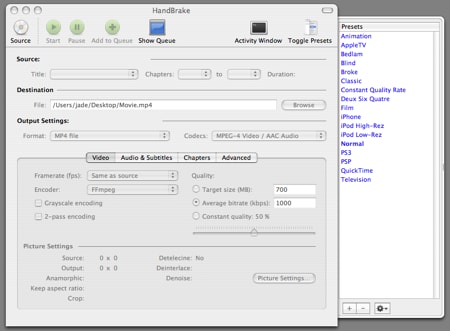

In my tests, both H.264 and HEVC looked remarkably close to the original, even on a big TV screen. Older Macs can play HEVC files just fine, but only the newest models have chips fast enough to encode HEVC decently. If you don't have a Mac made from 2017 onward, stick with H.264. H.265 or HEVC makes files even smaller - but requires hefty processing power to crunch the necessary numbers. Tried-and-true H.264 converts relatively quickly, and it can squeeze a high-def Blu-ray file onto a DVD's worth of space or less. The first two aren't worth considering with the latter two available. HandBrake offers a choice of four compression algorithms: MPEG-2 (oldest, relatively lousy), MPEG-4 (still old, not great), H.264 (old, faster, pretty good), and HEVC/H.265 (new, slower, even better).

HEVC: Which compression algorithm is best? Let's discuss a couple of the choices you'll need to weigh before you start putting your videos through the wringer.


 0 kommentar(er)
0 kommentar(er)
